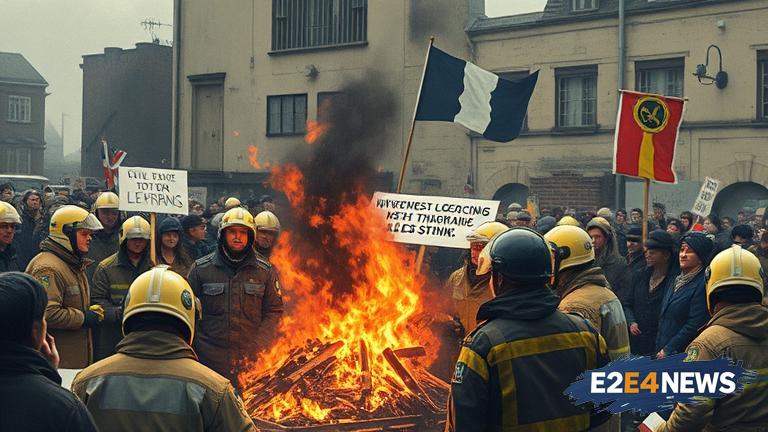The UK government has launched an inquiry into the violent clashes between police and miners at Orgreave during the 1984 miners’ strike. The inquiry, which was announced by the Home Secretary, will examine the events surrounding the clashes and the subsequent police investigation. The 1984 miners’ strike was a major industrial dispute that took place in the UK, with miners protesting against the closure of unprofitable coal mines. The strike lasted for nearly a year and was marked by violent clashes between miners and police. One of the most notable incidents took place at Orgreave, a coking plant in South Yorkshire, where thousands of miners and police officers clashed in a violent confrontation. The incident, which became known as the Battle of Orgreave, resulted in the arrest of 95 miners and the injury of many more. The police were accused of using excessive force against the miners, and the incident has been the subject of much controversy and debate over the years. The inquiry will be led by a senior judge and will have the power to call witnesses and examine evidence. The government has said that the inquiry will be transparent and independent, and that it will provide a full and thorough examination of the events surrounding the Orgreave incident. The inquiry is expected to take several months to complete, and its findings will be made public. The announcement of the inquiry has been welcomed by the families of the miners who were arrested and injured at Orgreave, as well as by trade unions and other organizations that have been campaigning for justice for the miners. The inquiry is also expected to examine the role of the police and the government in the events leading up to the Orgreave incident, and to consider whether there were any cover-ups or attempts to conceal the truth. The 1984 miners’ strike was a pivotal moment in British history, and the Orgreave incident was one of the most significant events of the strike. The strike was ultimately defeated, but it had a profound impact on the UK’s industrial relations and led to significant changes in the way that trade unions operate. The inquiry into the Orgreave incident is an important step towards providing justice and closure for the miners and their families, and towards shedding light on a dark and troubled period in British history. The UK government has said that it is committed to transparency and accountability, and that the inquiry will be a key part of this process. The inquiry will also examine the impact of the Orgreave incident on the local community, and will consider whether there are any lessons that can be learned from the events of 1984. The announcement of the inquiry has been welcomed by many, but some have expressed concerns that it may not go far enough in providing justice for the miners. The inquiry is expected to be a major news story in the coming months, and its findings are likely to have significant implications for the UK’s industrial relations and its approach to policing and public order.
